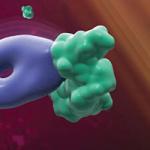
Research Topics
Fibrosis is a progressive, complex and multi-factorial process affecting multiple organs with heterogeneous etiologies. Fibrotic processes include tissue injury, chronic inflammation, oxidative stress, cellular senescence, aberrant wound healing and extracellular matrix deposition. Fibrosis leads to organ dysfunction and causes substantial economic burden. Nearly 45% of mortalities in the United States are attributed to fibrotic disorders. Patients with fibrotic diseases have large unmet medical needs and limited treatment options.
The mission of the Section on Fibrotic Disorders is to understand the cellular and molecular mechanisms involved in fibrosis, to identify therapeutic targets and modalities, and to develop effective pharmacotherapies for fibrotic disorders, including alcohol use disorder.
Research in the Section on Fibrotic Disorders primarily focuses on fibrosing pulmonary diseases. The section uses multi-disciplinary approaches and methodologies with integration of in vivo experimental models, genomics, metabolomics, analytical chemistry, immunology, biochemistry of cell metabolism, cell culture approaches, pharmacology, systems biology, and systems pharmacology to achieve a systems level understanding of complex fibrotic processes in lungs. The section is interested in pursuing a multi-target therapeutic approach to improve treatment efficacy by simultaneously engaging multiple pathogenic pathways in fibrosis with either rational polypharmacology or rational combination therapy approaches.
Current research projects follow:
- Investigating cell specific pathogenic roles of cannabinoid receptor 1 (CB1R) activation, and therapeutic use of second and third generation peripheral CB1R antagonists in fibrosing pulmonary diseases including idiopathic pulmonary fibrosis and Hermansky-Pudlak syndrome pulmonary fibrosis (HPSPF), and COVID-related lung injury.
- Biomarker discovery on fibrosing rare lung diseases
- Investigating health impacts of alcohol drinking in lung heath.
Biography
Resat Cinar obtained B.Sc. in Pharmacy degree in Ege University Faculty of Pharmacy, Izmir, Turkey, in 2004. Then he received a fellowship to enroll International Training Course in Biological Science at the Hungarian Academy of Sciences Biological Research Center in Szeged, Hungary in 2004. He obtained an M.Sc. in Neurobiology and Physiology in 2009, followed by a Ph.D. in Biological Sciences in 2010 at the University of Szeged, Hungary. He also earned an M.B.A. degree in the Faculty of Economics and Business Administration, Szeged University. He was a research associate between 2005 and 2009 in the Institute of Biochemistry in Hungarian Academy of Sciences Biological Research Center in Szeged, Hungary, where he studied molecular pharmacology of cannabinoid receptor 1 (CB1R) and opioid receptors. In 2010, he joined to the Laboratory of Physiologic Studies in the NIAAA for postdoctoral training with Dr. George Kunos to investigate the role of endocannabinoid / CB1R system in metabolic regulations in obesity, diabetes, and fatty liver disease. In 2015, he became a staff scientist in the Laboratory of Physiologic Studies in the NIAAA. In 2021, he was recruited as a tenure-track investigator and acting chief of the Section on Fibrotic Disorders.
He is one of the recipients of the NIH NCATS Director’s Award for scientific and medical achievement in 2018 with the quote “for extraordinary leadership in the discovery and development of first-in-class peripheral CB1R antagonist for therapeutic use in metabolic syndrome”. His research demonstrated pathologic roles of the endocannabinoid/CB1R system in fibroproliferative disorders such as lung and liver fibrosis. He is interested in polypharmacology and functional selectivity as a therapeutic strategy, aimed to develop more efficient and safer therapeutic modalities for fibrotic disorders. His research identified dual inhibition of CB1R and iNOS as a rational and more effective antifibrotic strategy in fibrotic disorders including fibrosing rare lung diseases such as idiopathic pulmonary fibrosis (IPF), Hermansky-Pudlak syndrome pulmonary fibrosis (HPSPF). He is involved in the development, patenting, lead optimizationm and lead selection of novel peripherally restricted hybrid compounds (CB1R/iNOS or CB1R/AMPK) as third generation CB1R antagonists for their therapeutic potential in obesity, diabetes, and fibrotic disorders. Furthermore, his research introduced first in-class functionally biased peripheral CB1R antagonist MRI-1891 (monlunabant) with therapeutic potential in diabetes and metabolic disorders with improved safety and efficacy through functional selectivity of CB1R antagonism.
His research identified two lead compounds MRI-1867 (zevaquenabant) and MRI-1891 (monlunabant) with therapeutic efficacy in preclinical studies of fibrosis and metabolic disorders, and translation potential from bench to bedside. Both lead compounds are now in clinical trial phases.
Selected Publications
- Arif M, Basu A, Wolf KM, Park JK, Pommerolle L, Behee M, Gochuico BR, Cinar R. An Integrative Multiomics Framework for Identification of Therapeutic Targets in Pulmonary Fibrosis. Adv Sci (Weinh). 2023;10(16):e2207454.
- Basu A, Arif M, Wolf KM, Behee M, Johnson N, Pommerolle L, Pineda RH, Sembrat J, Zawatsky CN, Dvorácskó S, Coffey NJ, Park JK, Karagoz SB, Godlewski G, Jourdan T, Harvey-White J, Königshoff M, Iyer MR, Cinar R. Targeting cannabinoid receptor 1 for antagonism in pro-fibrotic alveolar macrophages mitigates pulmonary fibrosis. JCI Insight. 2025;10(15).
- Liu Z, Iyer MR, Godlewski G, Jourdan T, Liu J, Coffey NJ, Zawatsky CN, Puhl HL, Wess J, Meister J, Liow JS, Innis RB, Hassan SA, Lee YS, Kunos G, Cinar R. Functional Selectivity of a Biased Cannabinoid-1 Receptor (CB(1)R) Antagonist. ACS Pharmacol Transl Sci. 2021;4(3):1175-1187.
- Cinar R, Iyer MR, Kunos G. The therapeutic potential of second and third generation CB(1)R antagonists. Pharmacol Ther. 2020;208:107477.
- Pommerolle L, Arif M, Behee M, Appolonia CN, Basu A, Wolf KM, Zawatsky CN, Johnson N, Rivellini O, Park JK, Cinar R. Chronic Alcohol Intake Compromises Lung Immunity by Altering Immunometabolism in Humans and Mouse Models. Am J Respir Cell Mol Biol. 2024;71(5):559-576.
Related Scientific Focus Areas


Molecular Biology and Biochemistry
View additional Principal Investigators in Molecular Biology and Biochemistry



This page was last updated on Tuesday, August 26, 2025